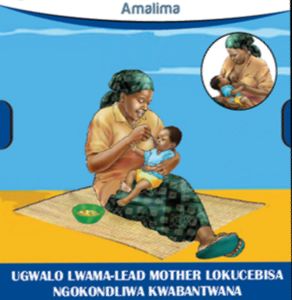Implementing Care Groups for improved maternal and child nutrition: Critical factors for success from the Amalima program in rural Zimbabwe
Abstract
Over the last decade Zimbabwe has made noteworthy progress in reducing both underweight and wasting in children under the age of five years, however one in four children in Zimbabwe is stunted. The rate in the decline of the number of children stunted still falls short of meeting the World Health Assembly target, and it goes without saying that effective, innovative community-based strategies are required by the government and development partners to accelerate the rate of stunting reduction. This paper presents experiences from using the Care Group approach for promoting improved maternal, infant and young child nutrition (MIYCN) and care based on lessons from the Amalima program, a seven-year United States Agency for International Development (USAID) Office of Food for Peace intervention. The Amalima program has been promoting Care Groups as a community and family centred approach to improve maternal and child nutrition in Zimbabwe. Care Groups are an innovative community-based strategy that has been rolled out as part of the Amalima program activities in four food and nutrition insecure districts in Zimbabwe. The final programme evaluation suggested the program succeeded in increasing the exclusive breastfeeding rate and reducing levels of nutritional stunting among children under two years. In the present discussion paper, we present the key lessons learned and strategies we believe may have contributed to making Care Group implementation effective; we highlight the modifications that we made in Care Group implementation to ensure a context appropriate approach; and we discuss how Care Groups can be integrated into the Ministry of Health and Child Care structure. The critical factors for successful Care Group implementation have been grouped into five broad categories: conduct formative research; ensure context specific approaches & adaptive management; leverage on social capital and cohesion; invest in human capital; prioritise quality assurance & reviews.

Authors retain all copyrights. In making a submission to World Nutrition, they are certifying that all material is theirs except quotations, as indicated, and that they have obtained permission for any photos, tables, or graphics taken from other publications or websites.




